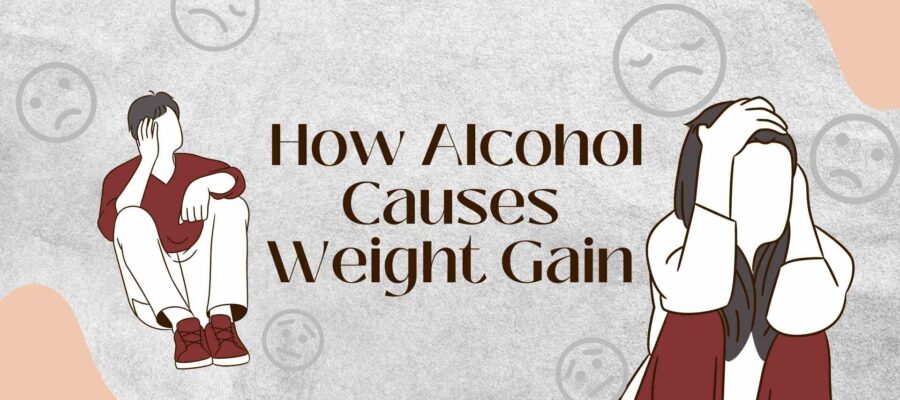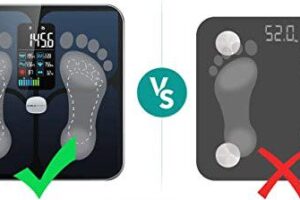Today, we will delve into the myriad ways alcohol causes weight gain and explore how reducing or quitting alcohol consumption can lead to weight loss and a healthier lifestyle. It seems like common sense that when we drink less alcohol we are consuming fewer calories and making better choices. But why is something that is so easy to conceptualize so difficult in practice?
It’s quite simple really. We consume alcohol in popular beverages such as beer, wine, and mixed drinks. These libations often accompany social gatherings, celebrations, and are a way many people choose to relax on weekends or after a hard day at work. When we drink and socialize, we are often confronted with less than optimal food choices (think fried foods and sweets).
This combination of alcohol and high calorie, low nutrition foods is a double whammy! Yet these two weight gain conspirators often go hand in fist, and fist in mouth.
While moderate alcohol consumption may not immediately cause weight problems, it’s important to understand how alcohol can contribute to weight gain and impact your overall health.
Calories And Alcohol
Alcohol is calorie-dense, containing almost as many calories per gram as fat. Unlike protein, carbohydrates, and fats, alcohol is devoid of nutritional value. Calories with no nutritional value are often called ’empty calories’. And when you’re drinking, these calories add up fast and go straight to your waistline for reasons we’ll explore below.
A single gram of alcohol is approximately 7 calories, which can quickly add up. Regular consumption of alcohol contributes to a significant increase in calorie intake, leading to weight gain over time.
Let’s look at beer as an example:
| Beer | Serving Size | Calories |
|---|---|---|
| Beer (light) | 12 oz (355 ml) | 103 |
| Beer (regular) | 12 oz (355 ml) | 153 |
| Beer (higher alcohol, craft beers) | 12 oz (355 ml) | 170 to 350 |
You can see that some craft beers, which are very popular these days, can contain up to 350 calories per 12 oz bottle or 467 per pint! Having three pints of IPA during a soccer match could cost you upwards of 1,400 calories! Any many of us don’t stop at three. Wine tends to be better at roughly 130 calories per glass while a Pina Colada or White Russian can contain up to 600 or more.
Now add in those nuts sitting on the bar, some french fries, onion rings, fried mozzarella or zucchini sticks, nachos, etc and the calories really start stacking up.
Considering that the National Institute of Health recommends 2,000 calories per day for women and 2,500 for men to maintain their weight, getting there after a just few beers and some bar food can really put you in the hole. Especially if this you’re doing this multiple nights a week.
Think about it, if you otherwise eat a healthy diet, but go out drinking two nights a week, it can be the equivalent of eating nine days during a seven day week. After a few months or years, it’s no surprise you’ve gained 20-30 pounds.
How Alcohol Increases Appetite
Alcohol has the ability to increase appetite and decrease inhibitions, leading to overeating and poor food choices. I talk about this in my Swapping Sugar For Alcohol blog. It’s just another way alcohol causes weight gain.
Studies have shown that alcohol can stimulate the brain’s reward center, increasing cravings for high-calorie foods. This combination of increased calorie intake from the alcohol itself and subsequent overeating contributes significantly to weight gain.
Again, there you are at the pub or at a party. Someone orders a huge plate of nachos or there’s a big spread laid out on the dining table. Inhibition is reduced. Yet there is all of this high calorie snack food begging you to eat it. Alcohol has given you the munchies and there’s plenty to munch on! So, with inhibitions decreased, you munch away. The more you drink, the more you munch.
Alcohol causes you to gain weight not only because it contains so many empty calories, but also because it encourages you to chow down. But it gets worse…
Impaired Fat Metabolism
Those snacks you’re eating suddenly take a back seat to alcohol when it comes time to metabolize them (aka convert them to energy or store them as fat).
When alcohol is consumed, it becomes the body’s primary fuel source, taking precedence over fat metabolism. The liver sees alcohol for what it is: a toxic poison. Thus, your liver works furiously to remove this poison from your body. Alcohol metabolism is prioritized over all other calories.
This means that while alcohol is being metabolized, the body’s ability to burn fat and process sugar is temporarily halted. Consequently, excess fat remains stored in the body, promoting weight gain and making it more challenging to lose weight. Excess sugar remains in the bloodstream where it is converted to fat. Fat + Fat = Fat!
Additionally, heavy alcohol consumption can lead to nutrient deficiencies, including deficiencies in vitamins and minerals involved in fat metabolism, such as thiamine (vitamin B1). These deficiencies impair the body’s ability to properly metabolize and utilize fats.
If that weren’t enough, alcohol can disrupt the normal balance of hormones involved in fat metabolism. For example, alcohol can increase the production of cortisol, a stress hormone associated with increased fat storage, particularly in the abdominal area. It can also decrease the release of growth hormone, which plays a role in fat breakdown.
If you’ve suffered from alcohol use disorder, you will also note that excessive alcohol consumption negatively impacts restful sleep which is essential to maintaining healthy weight.
Liver Function and Weight Gain
The liver plays a vital role in metabolizing alcohol. But excessive and prolonged alcohol consumption can lead to liver damage and fatty liver disease. When the liver is compromised, it becomes less efficient at metabolizing fats and regulating blood sugar levels. This can further contribute to weight gain and metabolic disorders.
Even more concerning is that alcohol consumption can stimulate the production of triglycerides in the liver. Triglycerides are a form of fat, and elevated levels can contribute to fatty liver disease and other metabolic disorders. Yikes!
Reducing Alcohol Consumption for Weight Loss
Here are some steps you can use to turn on the tide against alcohol induced weight gain:
a) Calorie Reduction: By cutting out or reducing alcohol consumption, you significantly decrease your calorie intake. This reduction can create a calorie deficit, leading to weight loss over time.
b) Improved Food Choices: Without the influence of alcohol, you are more likely to make healthier food choices. Avoiding the late-night snacks and high-calorie foods associated with alcohol consumption supports weight loss efforts.
c) Enhanced Fat Metabolism: By reducing alcohol intake, your body can focus on efficiently metabolizing stored fat for energy, leading to increased weight loss and improved body composition.
d) Liver Regeneration: The liver has remarkable regenerative capabilities. By reducing or quitting alcohol, you give your liver a chance to heal and regain its proper function, leading to improved metabolic processes and overall health.
e) Improved Sleep and Exercise Performance: As mentioned earlier, alcohol disrupts sleep patterns and impairs exercise performance. By eliminating or reducing alcohol consumption, you can enjoy better sleep quality and maximize your physical activities, further supporting weight loss and overall well-being.
Understanding how alcohol causes weight gain is essential for anyone seeking a healthier lifestyle. By recognizing the calorie content, appetite-stimulating effects, and impact on sleep and fat metabolism, you can make informed choices about alcohol consumption.
Quitting or reducing alcohol intake can lead to weight loss, improved liver function, better sleep, and enhanced exercise performance. Embrace the power to make positive changes, prioritize your health, and experience the transformative effects of a reduced alcohol lifestyle.




